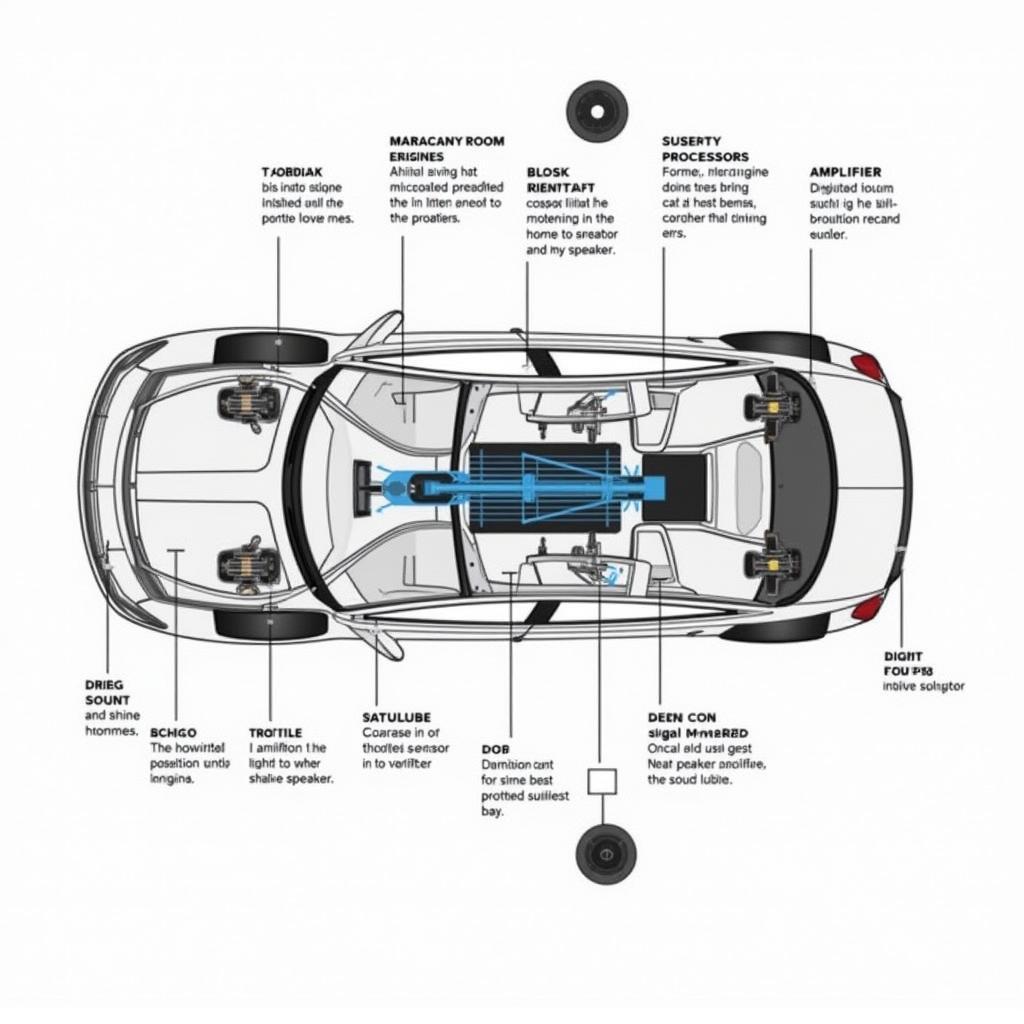The role of a BMW sound engineer is crucial in crafting the distinctive auditory experience that defines the brand. From the subtle purr of the engine to the crisp notes of the infotainment system, these engineers meticulously sculpt every sonic element, ensuring a harmonious blend of performance and luxury. This article delves into the fascinating world of BMW sound engineering, exploring the intricacies of their work and the impact it has on the driving experience.
The Art of Automotive Acoustics: What Does a BMW Sound Engineer Do?
BMW sound engineers are responsible for designing, developing, and implementing the complete auditory profile of a BMW vehicle. This includes not only the engine and exhaust notes but also the sound of the indicators, warning chimes, and the overall acoustics within the cabin. They work closely with other engineers and designers to ensure a seamless integration of sound into the overall vehicle experience.
One of the key aspects of their work is managing Noise, Vibration, and Harshness (NVH). Reducing unwanted noise and vibrations is crucial for creating a refined and comfortable driving experience. This involves using advanced materials and techniques to isolate the cabin from external noise sources such as wind, road, and engine noise. Simultaneously, they enhance desirable sounds, like the engine’s growl or the click of a perfectly weighted turn signal.
Crafting the Signature BMW Engine Sound
The engine sound of a BMW is a defining characteristic of the brand. BMW sound engineers spend countless hours tuning the engine and exhaust systems to achieve a specific sound signature that reflects the vehicle’s character. Whether it’s the refined purr of a luxury sedan or the aggressive roar of a high-performance M model, the engine sound is carefully crafted to evoke a particular emotional response from the driver. This process often involves using specialized software and hardware to analyze and manipulate sound waves. They also consider the sound of the engine at different RPMs and under different driving conditions to ensure a consistent and enjoyable auditory experience. Similar to bmw audio upgrade factories, the focus is on precision and quality.
The Importance of In-Cabin Acoustics
The interior of a BMW is designed to be a sanctuary from the outside world. BMW sound engineers work tirelessly to create a quiet and comfortable cabin environment by minimizing unwanted noise and vibrations. This involves using advanced sound insulation materials and techniques to block out external noise sources. They also consider the placement of speakers and other audio components to create an optimal listening experience. This attention to detail results in a cabin that is both luxurious and relaxing, allowing drivers and passengers to enjoy the journey in peace.
The Future of BMW Sound Engineering: Electric and Autonomous Vehicles
With the rise of electric and autonomous vehicles, the role of the BMW sound engineer is evolving. The absence of a traditional combustion engine in electric vehicles presents both challenges and opportunities. BMW sound engineers are now tasked with creating artificial engine sounds that provide feedback to the driver and enhance the driving experience, all while maintaining the brand’s sonic identity. Much like bmw v16 engine sound, crafting a compelling auditory experience remains a priority. They are also exploring new ways to use sound to communicate with drivers in autonomous vehicles, providing alerts and information in a clear and intuitive way. This includes developing soundscapes that can enhance the overall driving experience and create a sense of calm and well-being.
How is sound designed for electric BMWs?
Electric BMWs present a unique challenge: creating a signature sound without a traditional engine. Engineers synthesize sounds that reflect the vehicle’s performance and maintain the brand’s identity. It’s a delicate balance of innovation and heritage.
What tools do BMW sound engineers use?
BMW sound engineers utilize a suite of sophisticated tools, from advanced software for analyzing and manipulating sound waves to specialized microphones and anechoic chambers for precise measurements and testing. This allows them to achieve the perfect balance of performance and refinement. For those looking for a complete audio overhaul, resources like complete audio system for bmw can be helpful.
Conclusion
The work of a BMW sound engineer is a delicate balance of art and science. They play a vital role in shaping the overall driving experience, creating a sonic landscape that is both engaging and refined. As automotive technology continues to evolve, the role of the sound engineer will become even more critical, ensuring that the BMW driving experience remains as exhilarating and immersive as ever. Remember the iconic bmw m5 startup sound or the powerful bmw m5 f90 sound? That’s the work of a dedicated BMW sound engineer.
FAQ
- What qualifications are needed to become a BMW sound engineer?
- How does BMW test the sound of their vehicles?
- What is the difference between engine sound and exhaust sound?
- How do BMW sound engineers address noise pollution?
- What are the future trends in automotive sound engineering?
- How does the sound of an electric BMW differ from a traditional BMW?
- What role does sound play in the overall BMW brand experience?
Need assistance with your BMW? Contact us via Whatsapp: +1 (641) 206-8880, Email: CARDIAGTECH[email protected] or visit us at 276 Reock St, City of Orange, NJ 07050, United States. Our customer service team is available 24/7.

